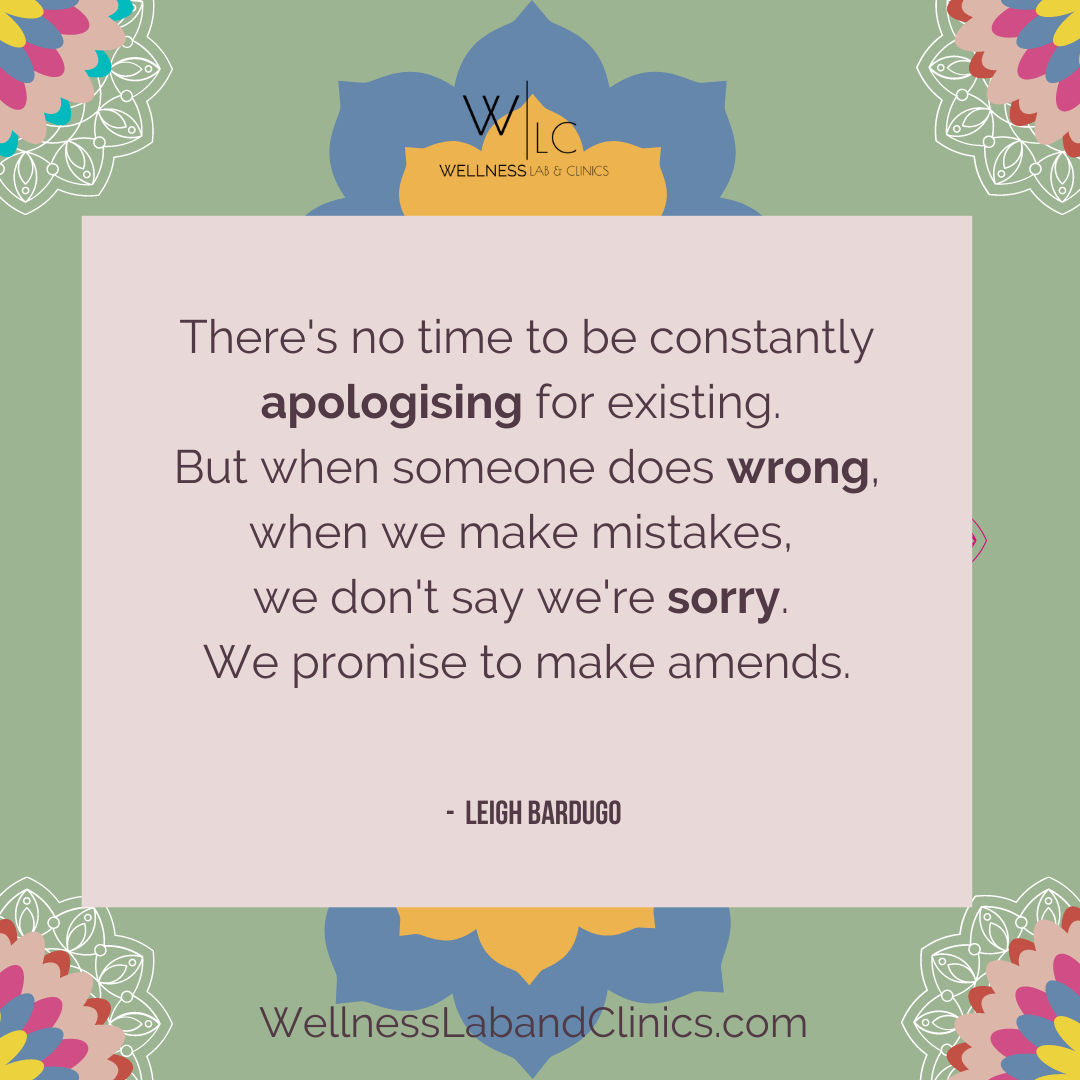RELATIONSHIP TUESDAY: Please Forgive Me
/Sorry.
Sorry I can't do that.
Sorry for being a pest.
Sorry for "the mess".
Sorry for being sorry.
Are you a chronic over-apologizer?
An over-apologetic person is someone who apologizes excessively beyond when the first apology was accepted and seeks forgiveness too soon, before fully discussing and exploring any issues.
In other words, it means offering an apology before it is required, or even before it is clear that the person apologizing should do so.
Why do we over-apologize?
Reasons can and do vary. Low self-esteem is a problem for some of us, as well as stress in our relationships. Others worry about how they are seen or whether they are worthy or desired.
They are so anxious to get the relationship back on track that apologies become a small price to pay for healing the relationship. It can be due to habit, how someone grew up, or cultural traditions and beliefs.
Occasionally, the act of apologising can seem like the right or kind thing to do. However, overapologising can cause problems for both the one making the apology and for other people.The over-apologizer may develop resentment and anger over time.
In addition to anger toward themselves for not speaking up or for demanding better terms, there may be anger toward others for demanding an apology.
How can you stop over-apologizing? Since there are a variety of reasons why some people over-apologise, there isn't one-size-fits-all solution; it depends on what you are doing or the specific situation.
The good news is that over-apologisers have a number of techniques at their disposal. When an over-apologiser responds to a problem, perhaps they should listen to what is being said before reacting. Ask questions only to clarify the issue in the beginning and force yourself to hear everything.
Realise that there could be a difference between what you hear and what you think.
If we pause long enough to think about the actual issue, rather than our perception and own bias. then we might find that a different claim is being made, and the other person doesn't think of the situation in the same way. When we calm our anxiety, we can see the points being made more clearly. There are ofter a few sides to the story. Take notes on what you want to communicate or talk to a trusted friend who will be more objective, and they can help you get clarity.
It might be the case that actually, you do need to make an apology.
Once you invest in looking at all the options, consider them, stand your ground with your own thoughts and perspectives - you may still find that you've made a mistake. This doesn't invalidate all of your efforts, instead it means you can offer a more authentic apology. It may also elicit honesty and a sorry from the other person as well.
Look deeper.
You might get caught in an over-apologising rut, stuck in old patterns of saying sorry as an automatic response. If you believe you are leaning that way, slow down and consider what is making you behave in that way. Instead of allowing another apology to be made, think about the possibility that other responses and actions need to be explored, or questions need to be asked.


